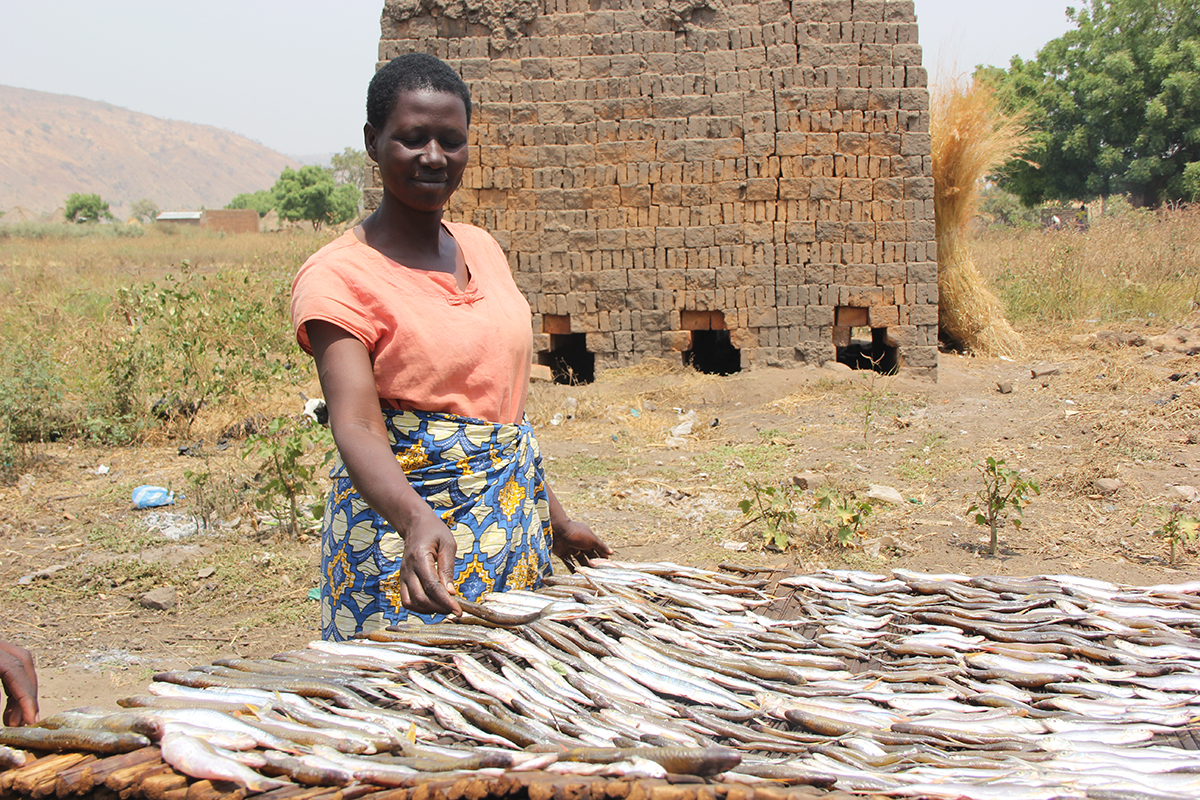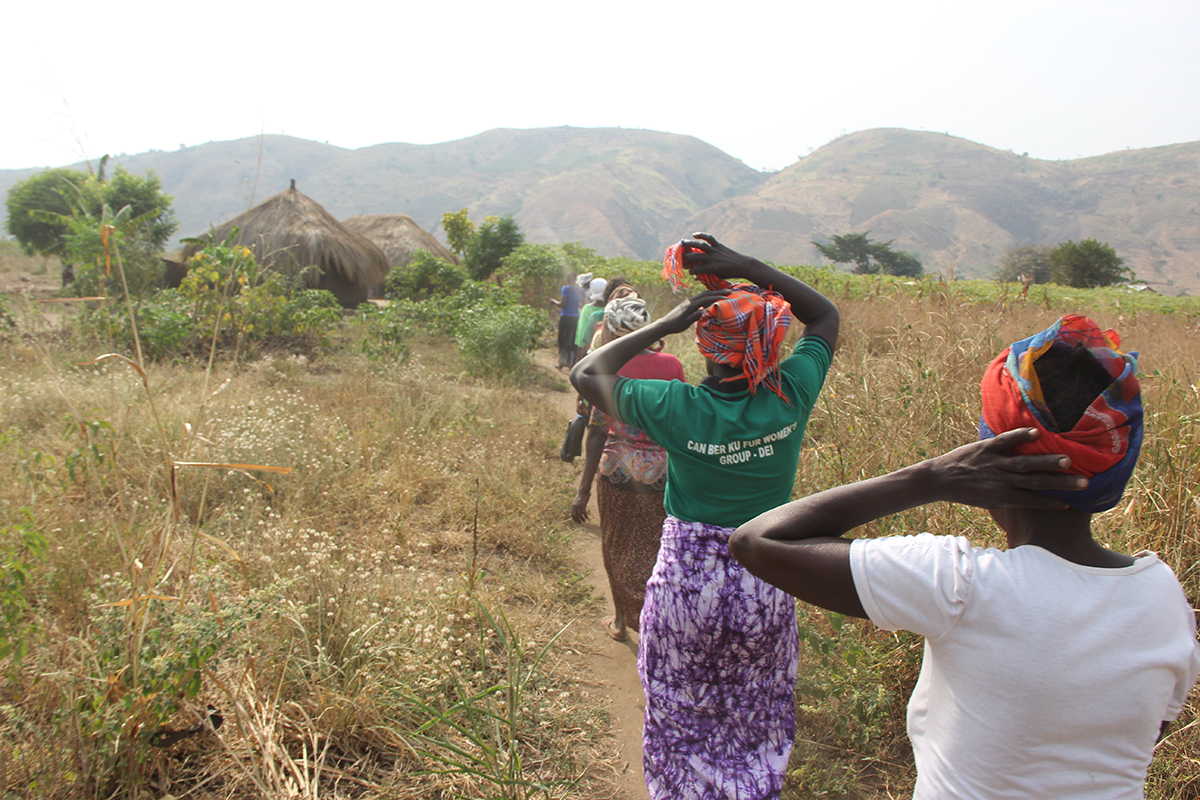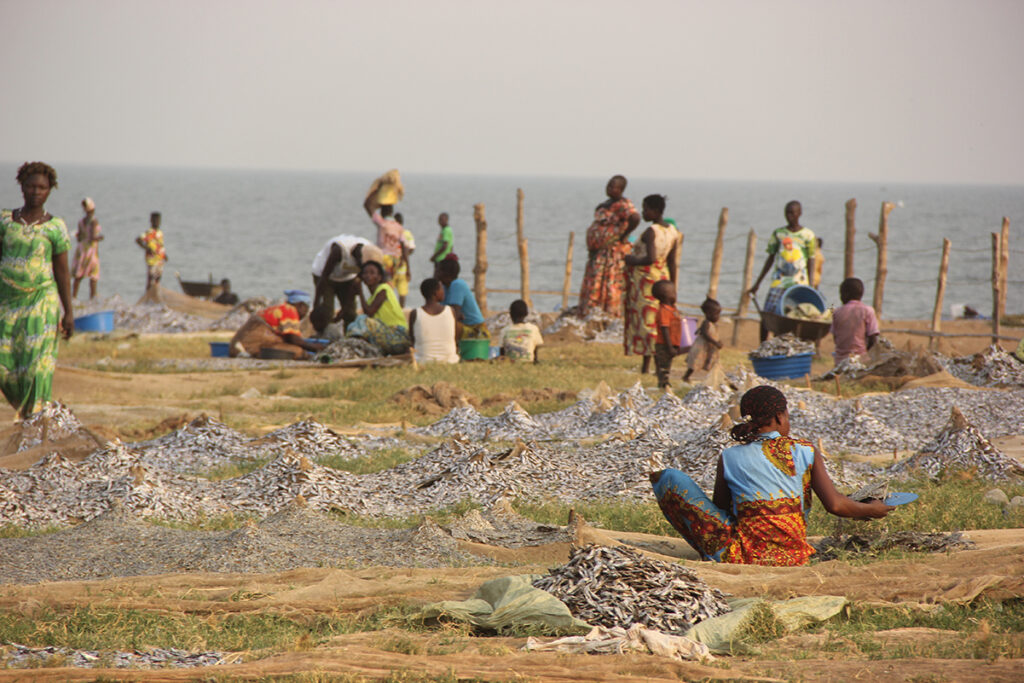The Environmental Defenders uses Village Savings and Loan Association methods to help rural women and farmer households get out of poverty while conserving the environment. The Environmental Defenders is addressing growing poverty and strengthening the resilience of impoverished rural farming communities in Dei sub county, Pakwach district, Uganda, by organizing women farmers into Village Saving and Loan Associations. This essay explores the altering reality of higher income, loan access, safe spaces for women, enhanced rural enterprise, and the empowerment of Dei women who engaged in this project through the Village Saving and Loan Association.
Through this effort, the Environmental Defenders has been aiding three women farmers organizations in Dei: Chan Ber Ku Fur, Mer Ber, and Bidokomit Group. Members of these groups have come together under the supervision of the Environmental Defenders to form self-managed groups of 20 to 30 individual Dei community members who gather twice a week to save their money in a safe space, access modest loans, and seek emergency loans among themselves.
In February 2022, ED launched an Agriculture, Livelihoods, and Conservation Baseline Survey with the goal of understanding and documenting the current conditions of communities living adjacent to the Luli Kayonga Forest Reserve and those living on the shore of the Dei Landing site in Pakwach district.

According to the Agriculture, Livelihoods, and Conservation Baseline Survey, women smallholder farmers and their households in Dei Sub County, Pakwach district, Uganda face a high reliance on subsistence agriculture, a limited income diversification strategy, limited participation in local decentralized governance, and now a ban on fishing activities and human rights violations in implementing government enforcements on Lake Albert, which have culminated in acute hunger. Although the Ugandan government has intensified law enforcement to combat human actions that endanger Lake Albert’s water supplies, there have been complaints of human rights violations. According to Environmental Defenders, police and troops enforce compliance by seizing boats and/or nets, and the seized objects are routinely burnt by law enforcement personnel. A review of the provisions of the Ugandan aquaculture and fisheries law, sections 101 and 102, reveals that there is no provision in the Bill that allows enforcement authorities the ability to destroy and/or burn boats and nets if a suspect is captured. Instead, explicit procedures for what should happen to seized items have been developed. As a result, the burning of boats or nets without the support of the law may be regarded a human rights violation, because the same law permits suspects to ask for the recovery of seized items even while they are being presented in court. This and other circumstances have had an impact on the Dei community’s living conditions and livelihoods, particularly on women smallholder farmers and fisher folk.
“As we speak, that graph does not represent the fishermen; farmers, on the other hand, may be better than fishermen because their income is currently zero, and people are sleeping on empty bellies.” This is proof of the dire situation: we made a visit to Kayonga Primary School last week. We noticed that from a student population of 1022 at the start of the year, we now had only 106 pupils in the P1-P7 class range. This means that 921 pupils are unable to attend school because they have not eaten. There is not a single boat left in Kayonga.” (Dei Sub County Leader, Validation Workshop Dei, July 18, 2022).
“The Government of Uganda imposed stringent regulations on us beginning in 2021,” a senior source in the community confirms.There was no community outreach to educate us of the rules. Instead, we were allowed one week to alter the net size and convert from canoes to boats…” KII, Dei Landing, 27 February 2022.

During the men’s FGD in Dei village, one of the participants stated, “The government sees us as rebels…we are not.” This is because they accuse us of utilizing an illegal boat size and an illegal net size. However, we lack the funds to acquire the nets and boats that they require. So let them provide us nets and boats…and establish groups to work with…”
The amount of loan that can help these village men rebuild their fishing livelihood source was discussed as part of the conversation that followed this statement. The men exchanged cost estimates for the principal components required to comply with current regulatory standards.
Given the foregoing, the Environmental Defenders is carrying out an action to address the aforementioned difficulties by organizing 90 vulnerable smallholder farmers and fisherforks women households into three farmer groups via a Village Saving and Loan Association. Women farmers and fishermen may simply pool their knowledge, networks, risks, and finances in this Association to take collective action.

As a result, the project has used innovative strategies such as the sustainable agricultural intensification approach combined with Village Saving and Loan Association, participation in local governance, agroforestry, and environmental peace building to trigger environmentally friendly and gender-sensitive production and marketing of diversified agricultural commodities that guarantee men and women, increasing food security and profitability.
This project is assisting in the eradication and reduction of poverty at the household level among target beneficiaries, who have reported increased household earnings. Some members of the organization have purchased property, such as farmland. Some group members told Environmental Defenders that due of this project, they are able to generate money from a range of activities such as fishing, farming, and agricultural harvest sales, allowing them to send their children to boarding schools. Some group members reported earning enough money to buy the fishing gear and boats required by the Ugandan government for fishing in Lake Albert. Others say they were able to build new homes and raise their children in peace because of the Village Saving and Loan Association. Others have shifted from farming to fishing, using the right fishing gear and legal fishing tools allowed by Ugandan fisheries law.
The agroforestry component of this project involves improving the natural environment by increasing the amount of land planted with native and fruit trees and establishing wood lots, among other things.





